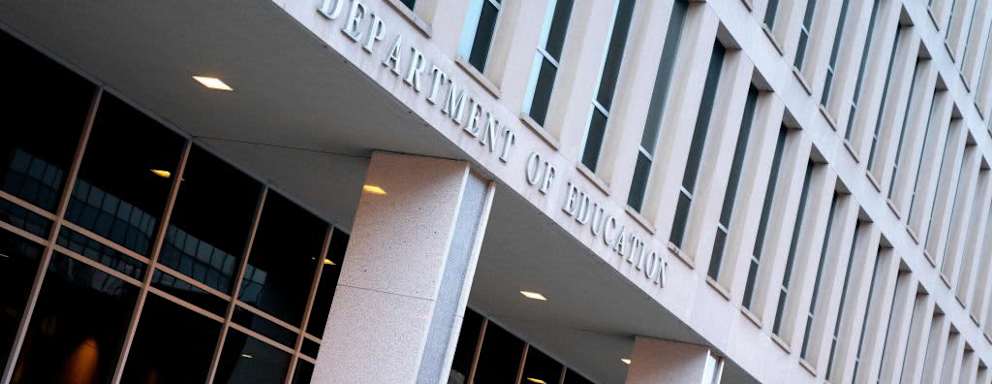Education Department Deploys ‘Secret Shoppers’ for College Oversight
 Credit: Image Credit: STEFANI REYNOLDS / AFP / Getty Images
Credit: Image Credit: STEFANI REYNOLDS / AFP / Getty Images- The Department of Education plans to use secret shoppers to monitor colleges.
- Secret shoppers will look for predatory recruitment and enrollment practices at schools, like colleges misrepresenting the cost of attendance.
- Secret shoppers will “serve as one of many tools that [the Federal Student Aid office] may use to evaluate an institution’s recruitment, enrollment, financial aid, and other practices,” according to a Tuesday release.
- The addition of secret shoppers comes as the Department of Education ramps up oversight of colleges.
The Department of Education (ED) is stepping up oversight of colleges through the use of “secret shoppers,” officials announced Tuesday.
The secret shoppers will “serve as one of many tools that [the Federal Student Aid office] may use to evaluate an institution’s recruitment, enrollment, financial aid, and other practices,” according to a Tuesday press release. Secret shoppers will look for predatory recruitment and enrollment practices, according to the release.
Predatory practices secret shoppers will be looking for include colleges misrepresenting key statistics like the cost of attendance, the transferability of credits, future potential earnings of a school’s graduates, withdrawal rates, completion rates, and job placement rates, according to the release.
“Schools that engage in fraud or misconduct are on notice that we may be listening, and they should clean up accordingly,” Kristen Donoghue, the chief enforcement officer for the office of Federal Student Aid, said in the release. “But schools that treat current and prospective students fairly and act lawfully have nothing to fear from secret shopping.”
Secret shoppers’ findings could both support ongoing reviews of school practices or be the cause of a new investigation of a school, according to the release.
Secret shoppers are just the latest ED bid to ramp up oversight of colleges. ED also plans to create a list of “low-financial-value” college programs, although BestColleges reported that there is disagreement over how that list should be compiled.
Last year, ED published final regulations closing the so-called 90/10 loophole, BestColleges previously reported. The 90/10 rule requires for-profit institutions to generate at least 10% of their revenue from nonfederal sources. But many schools used student funds from the GI Bill to count toward that 10% requirement, BestColleges reported — a loophole that ED officials closed last year.
At least one lawmaker expressed approval for ED’s secret shoppers plan: Senate Majority Whip Dick Durbin, D-Ill., chair of the Senate Judiciary Committee, said in a Wednesday tweet that he supports the plan “to monitor whether colleges use misleading information to recruit and enroll students.”
“This evidence will help hold institutions, especially #4profit colleges, accountable and alert students to their predatory tactics,” Durbin wrote.
The move to add secret shoppers to the government’s oversight toolbox drew skepticism from advocates for for-profit colleges.
Nicholas Kent, chief policy officer for Career Education Colleges and Universities, said in a statement his organization supports efforts that hold institutions that misrepresent themselves to students accountable. But he wrote that the government “has a track record of using secret shopper investigations to malign politically unfavored institutions with distorted findings that later result in the need for public correction.”
“Given the current administration’s animus toward for-profit institutions, we are concerned this self-proclaimed ‘tool’ will be used as a weapon to inflict further damage upon private career schools and limit student choice,” Kent wrote.